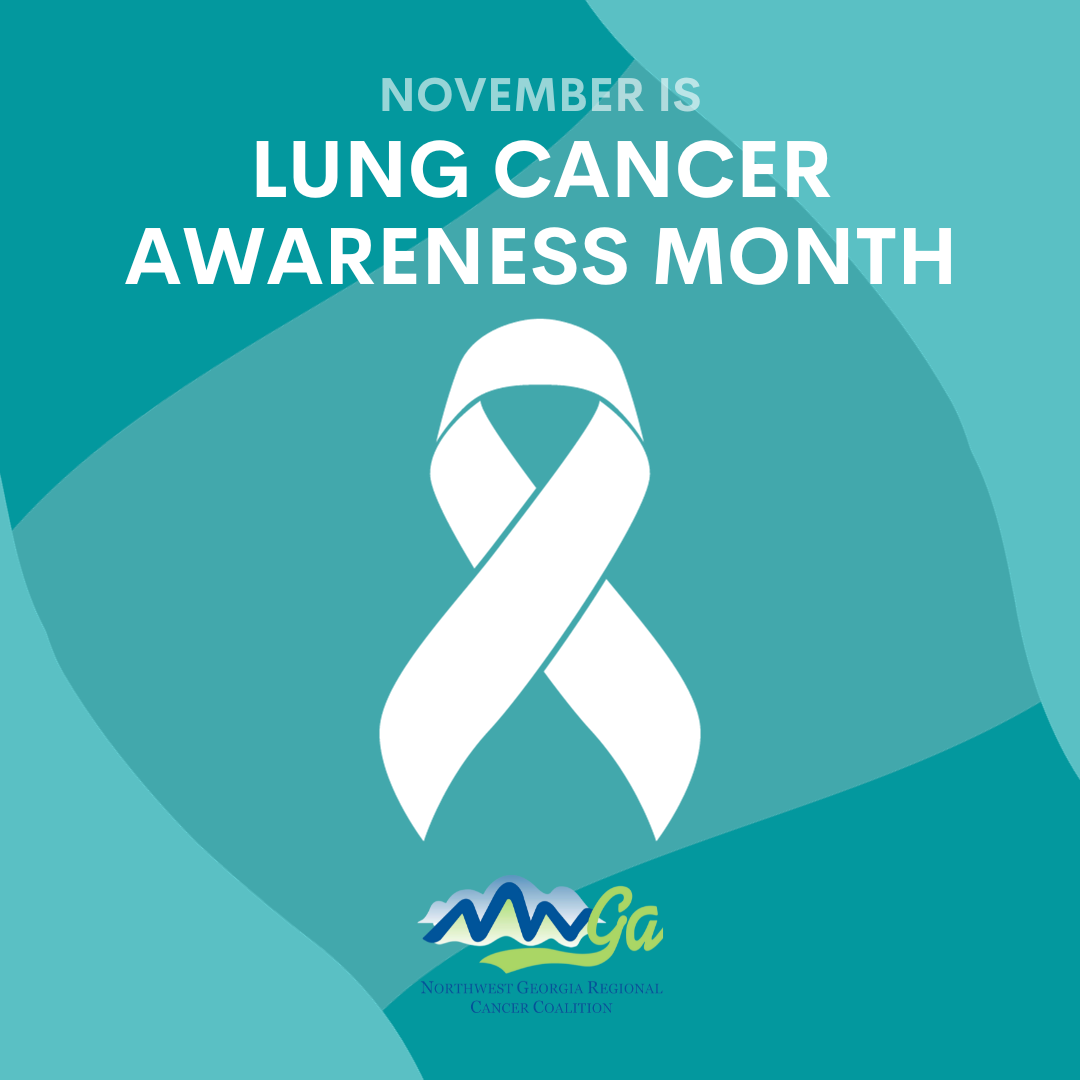
November is Lung Cancer Awareness Month, so there’s no better time to talk about how to take advantage of life-saving lung cancer screenings.
According to the World Health Organization, lung cancer is the leading cause of cancer-related deaths worldwide. Smoking is responsible for approximately 85% of all cases of lung cancer. Not smoking tobacco is the best way to prevent lung cancer, but we also have other tools such as screening. Screening is a test that is utilized to detect lung cancer before any symptoms arise and when it is more likely to be curable (WHO, 2023).
The American Cancer Society (ACS) released new lung cancer screening guidelines on November 1, 2023. The new guideline recommends annual screening for lung cancer for individuals ages 50 to 80 years old who smoke or previously smoked and have a 20-year or greater pack-year history. The recommended annual screening test for lung cancer is called a low-dose CT scan (ACS, 2023).
Of all routine cancer screenings, lung cancer screening rates are the lowest. The majority of screening guidelines are fairly easy to understand. They are based on factors such as age and family history, but lung cancer screening guidelines tend to be more confusing. One of the primary indicators that help you understand if it is time for you to be screened for lung cancer is a measurement called a “Pack-Year.” A lack of understanding of how to calculate a pack-year history could be a reason why eligible individuals do not receive their lung cancer screening. Pack-year history explains how long a person smoked and how many cigarettes they smoked. One pack of cigarettes has 20 cigarettes. In order to calculate your pack year history, you must multiply the number of years you smoked by the number of packs you smoked each day. A person could have a 20-pack-year history, for example, if they smoked:
American Cancer Society, 2023
Screening long-time smokers with an annual low-dose chest CT significantly reduces cancer deaths. Early detection equals better outcomes and it is part of our mission at the Northwest Georgia Regional Cancer Coalition (NWGRCC) to make sure our community has access to these screenings regardless of their ability to pay.
The NWGRCC partners with healthcare agencies and community organizations to provide low–cost or no–cost lung cancer screenings for uninsured, under-insured, and underserved patients across Northwest Georgia. By working with our healthcare partners, we identify and navigate patients through recommended screenings to increase early detection and reduce cancer mortality. Eligible patients must be within 200% of the 2023 Federal Poverty Guidelines.
If you are a patient and think you may be eligible for a low–cost or no–cost lung cancer screening please visit one of our partners listed below or call us at 706-291-9998 for a referral. If you are a screening partner or healthcare provider with patients needing screenings, please contact us at 706-291-9998.
Lung Cancer Screening Partners: Atrium Health Floyd Medical Center, AdventHealth Redmond, AdventHealth Gordon, and Hamilton Medical Center.
If you have concerns about your risk of lung cancer, talk with your healthcare provider.
References
ACS. (2023). Retrieved from
https://www.cancer.org/research/acs-research-news/new-lung-cancer-screening-guidelines-urge-more-to-get-ldct.html
WHO. (n.d.). Lung cancer. Retrieved from
https://www.who.int/news-room/fact-sheets/detail/lung-cancer#:~:text=Lung%20cancer%20is%20the%20leading,approximately%2085%25%20of%20all%20cases
By: Allison Agnew, NWGRCC


Chattooga Opinions
The Joy of the Journey: For Future Generations

Bulloch Public Safety
01/30/2026 Booking Report for Bulloch County

Chattooga Local News
Obituary: Mr. Jeremy Wayne Elrod

Chattooga Local News
Gov. Kemp Declares New State of Emergency Ahead of Winter Storm

Chattooga Local Government
Majority Leader Jason Anavitarte Applauds Committee Passage of Priority Legislation, Senate Bill 382

Bulloch Public Safety
01/20/2026 Booking Report for Bulloch County

Bulloch Public Safety
01/12/2026 Booking Report for Bulloch County

Bulloch Public Safety
01/09/2026 Booking Report for Bulloch County

Bulloch Public Safety
01/05/2026 Booking Report for Bulloch County

Bulloch Public Safety
01/26/2026 Booking Report for Bulloch County





